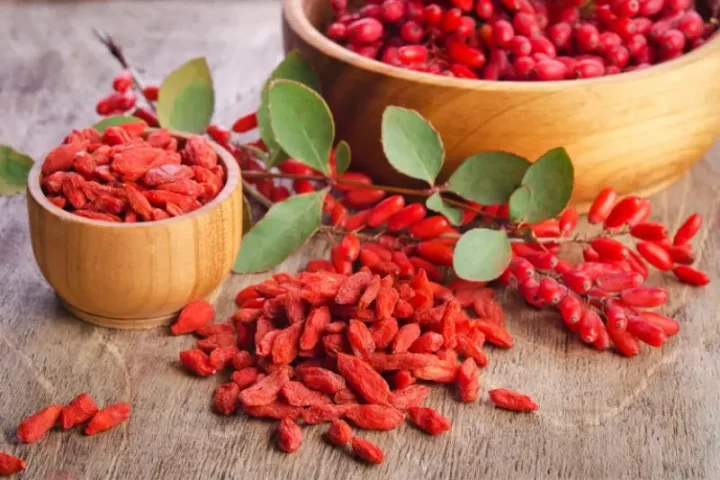In the relentless pursuit of feeding a growing population, farmers face an unyielding battle against weeds that threaten their crops. To combat these resilient foes, herbicides have become indispensable, allowing farmers to protect their harvests and sustain their livelihoods. However, beneath the surface of this seemingly necessary solution lies a toxic threat that often goes unnoticed.
What are the hidden health risks associate, and are the farmers, the very guardians of the food supply, unknowingly putting their well-being in jeopardy? In this article, you will delve into the unsettling realities of herbicide exposure and uncover six alarming health risks that haunt those who toil the fields.
Table of Contents
1. Respiratory Issues
Among the many health risks lurking within herbicide usage, respiratory issues are a formidable adversary for farmers. Picture this: the air is thick with the pungent smell of chemicals as farmers diligently spray herbicides, unaware of the invisible dangers that pervade their lungs.
The inhalation of herbicide fumes and particles can have devastating consequences on respiratory health. Glyphosate, a widely used herbicide, has been linked to respiratory symptoms such as coughing, wheezing, and shortness of breath. It can irritate the delicate lining of the respiratory tract, leading to inflammation and chronic respiratory conditions.
Moreover, the recent emergence of herbicide-resistant weeds has escalated the usage of more potent herbicides, exacerbating the respiratory risks faced by farmers.
2. Cancer Risk
In recent years, the connection between herbicide usage and cancer has taken center stage with a slew of lawsuits and legal battles revolving around one notorious herbicide: Roundup. The fight for justice for farmers affected by the herbicide from Bayer-Monsanto has gained momentum through the Roundup lawsuit, aiming to secure the rightful compensation they deserve for the losses incurred.
According to TorHoerman Law, scientific evidence suggests a link between glyphosate, the key ingredient in Roundup, and various types of cancer. Farmers at the forefront of herbicide application face an elevated risk of developing cancer due to prolonged exposure to these chemicals.
Numerous studies have indicated a heightened incidence of non-Hodgkin lymphoma (NHL) among individuals exposed to glyphosate.
A recent Roundup lawsuit update tells that Bayer-Monsanto has been aggressively pursuing the dismissal of lawsuits, but many of their efforts have been blocked by state and federal courts. Despite these efforts by the corporation, the Roundup lawsuits are still being brought in courts across the nation, and no stone is left unturned.
Additionally, the attorneys are continually taking on new cases and representing the farmers who endured the dreadful fate of cancer.
Moreover, according to the Forbes Advisor, most of the litigation bring against Monsanto and Bayer will resolve later. However, one of the earliest instances went to trial in 2018 when a jury decided to support a school groundskeeper in California who had used Roundup routinely for many years.
The plaintiff’s attorneys assert that frequent exposure to glyphosate brought about his cancer.Due to insufficient warnings by Monsanto and Bayer regarding the potential cancer risks associated with Roundup, the jury awarded the plaintiff nearly $300 million in damages. Thus, there is always hope that the lawyers and victims can help themselves to be mentally prepare with a positive attitude.
3. Skin Disorders and Irritation
In the battle against weeds, farmers find themselves engaged in an intimate struggle with the very elements that sustain life. However, this prolonged contact with herbicides comes at a steep cost to their skin health. The constant exposure to these chemical concoctions can result in various skin disorders and irritations, casting a shadow on the hands that nurture food.
Farmers frequently come into direct contact with herbicides through spraying, mixing, or handling treated crops. This contact can lead to acute skin irritations such as redness, itching, and inflammation. The chemicals in herbicides can strip the skin of its natural protective barriers, leaving it vulnerable and prone to rashes and allergic reactions.
4. Reproductive Health Concerns
Herbicide usage has raised significant concerns regarding its potential impact on reproductive systems, posing a threat to both male and female farmers.
Studies have shown that certain herbicides, such as atrazine, can disrupt hormonal balance and interfere with reproductive processes. Exposure to herbicides has been linked to reduced sperm quality, decrease sperm count, and alter hormone levels in male farmers.These effects may increase the risk of infertility and hinder the ability to conceive.
Female farmers, on the other hand, face their own set of reproductive health concerns. Associations have linked herbicides containing endocrine-disrupting chemicals to menstrual irregularities, hormonal imbalances, and an elevated risk of miscarriages.
5. Neurological Disorders
While farmers work tirelessly to cultivate the land, they face an often-overlooked danger that strikes at the very core of their being, the risk of neurological disorders. Herbicides, laden with potent chemicals, can infiltrate delicate neural pathways, posing a serious threat to the neurological health of those who rely on these substances to protect their crops.
Numerous studies have suggested a potential link between herbicide exposure and the development of neurological disorders. For instance, according to the National Library of Medicine, glyphosate or its commercial formulations can cause several neurological side effects.
Demonstrations indicate that early-life exposure to this herbicide disrupts normal cell development by deregulating multiple signaling pathways crucial to the process.It can result in changes to differentiation, neuronal growth, and myelination.
Moreover, agricultural activities involving pesticides, such as chlorpyrifos, increase the risk of neurodevelopmental disorders in children, emphasizing the need to prioritize their well-being.
6. Chemical Poisoning and Acute Toxicity
In the relentless fight with weeds, farmers wield powerful tools in the form of herbicides. However, the very substances intended to protect crops can transform into potent agents of chemical poisoning, posing a grave risk to the health and well-being of those who work in the fields.
Experts made a troubling discovery when they found that over 80% of urine samples obtained from children and adults in a health study conducted in the US contained a weedkiller chemical associated with cancer. This revelation raised significant concerns among the experts.
In a study conducted by a division of the Centers for Disease Control and Prevention (CDC), it was found that out of 2,310 urine samples collected from a representative sample of the US population, 1,885 samples contained detectable levels of glyphosate.
Exposure to such types of herbicides carries the inherent danger of acute toxicity. Farmers who handle these chemicals without proper protective measures are vulnerable to immediate health risks.
Herbicides Come with Hidden Risks That Must Not Be Disregarded
The idyllic image of farmers toiling under the sun belies the hidden dangers and toxic threats they face daily. Stricter regulations, increased awareness, and the adoption of safer alternatives are essential in mitigating these threats.
By supporting sustainable farming practices and demanding transparency in the food supply chain, it can contribute to a healthier and safer environment for both farmers and consumers. Ensure and prioritize that agricultural productivity does not compromise any farmer’s well-being while exploring the 6 health risks associated with herbicide usage in this eye-opening exposé.




